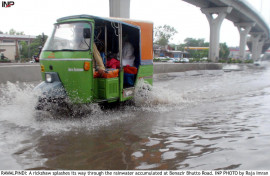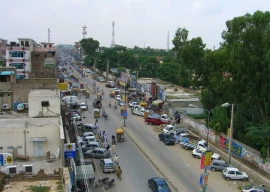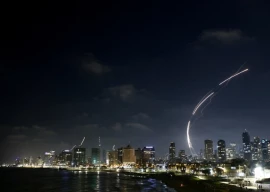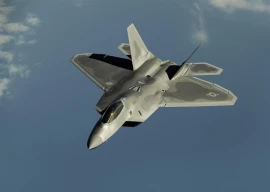
As tensions between India and Pakistan momentarily ease, a deeper unease continues to fester, especially among those who live closest to the LoC. In Azad Kashmir, entire communities have once again been upended by a conflict they did not cause. These people bear the brunt of every cross-border escalation. During the recent skirmishes, over 30 lives were lost, more than 1,100 families were displaced, and hundreds of homes were destroyed. Even now, with a fragile ceasefire in place, children carry invisible psychological scars, and the dread of renewed violence hangs thick in the air.
Meanwhile, Indian television channels continue to fuel the fire. Instead of welcoming the ceasefire, several news anchors and talk show hosts appear to be more interested in inciting further aggression. Guests scream for retribution. Hashtags trend are calling for war. There's something deeply disturbing about watching a media ecosystem treat the prospect of large-scale violence as entertainment. This isn't journalism - it's provocation dressed as patriotism.
The hysteria began almost immediately after the terrorist attack in Pahalgam, a popular tourist spot in Indian-occupied Kashmir. Without waiting for any investigation, many Indian news outlets - most of them backed by powerful business interests with ties to the ruling Hindu nationalist party - pointed fingers at Pakistan. Some even went so far as to suggest military strikes before the Indian government had made any official statement.
Social media added fuel to the fire. From across the border came a flood of memes and hate-filled posts aimed at Pakistanis. For me, it was especially disheartening. As a law graduate from the United States, I shared classrooms and dormitories with Indian students. We were taught the values of peace, equality, and respect for all nationalities. To see some of those same people reposting venomous content online is deeply unsettling. It felt like the war wasn't just being fought in the skies or at the borders, but on timelines, newsfeeds and WhatsApp groups. Even prominent artists - usually voices of peace and cultural diplomacy - joined the chorus of hostility. Some, ironically designated as UN Ambassadors for Peace, fanned the flames instead of promoting calm. These dark days have shown how deeply hate can penetrate even the most idealistic circles.
Unsurprisingly, India's leadership has struggled to sell the ceasefire as a win. The lack of a decisive military success, combined with domestic political pressures, has led to fears that further escalation may still be on the table, and the Indian aggressor may strike Pakistan with greater force. In Pakistan, the mood has been one of pride, especially after the air force successfully downed Indian aircraft in retaliation - an act New Delhi refused to acknowledge. But even amid that pride, we must remember: there is no glory in war. Victory, if one dares to call it that, comes with funerals and broken homes.
The new normal that this conflict has introduced is alarming. Future tensions between India and Pakistan may no longer be limited to cross-border firing. Drone strikes, cyberattacks and covert operations are increasingly part of the strategic landscape. This escalation presents multiple new threats, and the primary victims will, as always, be ordinary civilians.
Pakistan must prepare for this evolving threat landscape, given that it has exercised considerable restraint. Even after the recent hijacking of the Jaffer Express in Balochistan - an attack that many believe was aided by Indian intelligence - Pakistan has not opted for indiscriminate retaliation. The involvement of convicted Indian spy Kulbhushan Jadhav in destabilising efforts across Balochistan only adds to the list of provocations.
India may have acted as the aggressor, but Pakistan has responded with caution and responsibility. Our response has been defensive, not expansionist. Our air force's success in repelling Indian attacks further reinforced our commitment to deterrence, not destruction.
War should not be glorified. It should be feared, avoided and condemned. Peace must not be framed as weakness, and diplomacy must never be drowned out by drumbeats of war.





















COMMENTS
Comments are moderated and generally will be posted if they are on-topic and not abusive.
For more information, please see our Comments FAQ